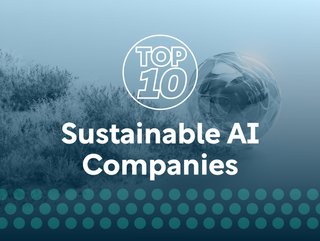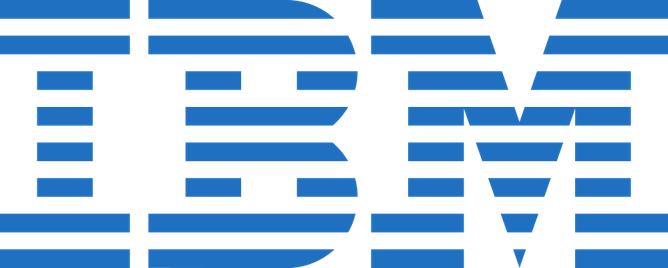
In a world increasingly focused on sustainability, major corporations are leveraging the power of artificial intelligence (AI) to drive environmental change. From reducing carbon footprints to optimising resource management, these companies are at the forefront of sustainable innovation. Let's explore 10 renowned brands that are using AI to pioneer eco-friendly solutions.
10. Apple

Tech giant Apple integrates AI into its supply chain to optimise processes and reduce energy consumption. Over 250 of the company’s suppliers have committed to 100% renewable energy for Apple production, totalling over 20 gigawatts of clean energy. AI plays a crucial role in enhancing Apple’s sustainability ambitions, from sourcing materials more efficienctly to recycling products.
Revenue: US$383bn
Employees: 161,000
CEO: Tim Cook
Founded: 1976
9. IBM

Global technology company IBM, harnesses AI to tackle environmental challenges. Through its Watson AI platform, IBM develops solutions for monitoring, conservation and sustainability. By analysing data, IBM's AI provides insights for informed decisions, from predicting weather patterns to optimising resources. Institutions like Mohamed Bin Zayed University of Artificial Intelligence, the Government of Kenya and NASA, all use the platform in their climate efforts.
Revenue: US$61.86bn
Employees: 282,200
CEO: Arvind Krishna
Founded: 1911
8. Google

Google says it prioritises sustainability with AI-driven initiatives. DeepMind, its AI subsidiary, develops energy-efficient technologies to cut carbon emissions. Utilising DeepMind AI, Google claims to have achieved a 40% reduction in data centre cooling expenses, setting new sustainability standards. Google's AI algorithms optimise resource allocation, reducing waste and preserving the environment.
Revenue: US$307.39bn
Employees: 156,500
CEO: Sundar Pichai
Founded: 1998
7. Microsoft

Microsoft's AI for Earth programme tackles environmental challenges. Leveraging AI, the initiative facilitates reforestation efforts, enabling the planting of over 50 million trees worldwide. The collaborative efforts involve various organisations, communities and individuals. Additionally, the programme monitors and safeguards 10 million hectares of ecosystems, supporting habitat preservation, while predicting trends to advance conservation endeavours.
Revenue: US$211bn
Employees: 221,000
CEO: Satya Nadella
Founded: 1975
6. Amazon

Amazon utilises AI to drive sustainability across its operations, optimising logistics and reducing energy consumption through its AWS AI services. The algorithm accelerates environmental impact assessments for products, reducing previous mapping times from a month to hours on its platform. It claims its AI-driven initiatives boost operational efficiency, promote global environmental stewardship and facilitate the adoption of renewable energy.
Revenue: US$574.785bn
Employees: 1,525,000
CEO: Andy Jassy
Founded: 1994
5. Tesla

Tesla incorporates AI to drive sustainability in transportation. AI-powered features like autonomous driving and energy management optimise energy usage, reducing carbon emissions. By leveraging AI algorithms, Tesla enhances vehicle efficiency, setting new eco-friendly standards. According to Tesla, its customers avoided releasing about 13.4 million metric tons of CO2e into the atmosphere in 2022.
Revenue: $96.8 Billion
Employees: 140,473
CEO: Elon Musk
Founded: 2003
4. Meta

Meta's AI research division has come up with innovative solutions for data centre optimisation, energy reduction and renewable energy promotion. Leveraging AI, Meta says it enhances its efficiency, minimising its global environmental footprint. AI initiatives also enable resource management and waste reduction for the business.
Revenue: US$134bn
Employees: 67,317
CEO: Mark Zuckerberg
Founded: 2004
3. Samsung

Global electronics manufacturer Samsung integrates AI for sustainability across its product range and manufacturing sites. Smart appliances and eco-friendly manufacturing methods powered by AI, decrease energy consumption, minimise waste, and boost efficiency in its electronics divisions. Samsung has also joined RE100 to slash its indirect carbon emissions, aiming to transition all electricity to renewable energy by 2050. It aims for renewable energy at all overseas operations by 2027.
Revenue: US$198.2bn
Employees: 270,372
CEO: Han, Jong Hee & Kyung, Kye Hyun.
Founded: 1938
2. Cisco

Cisco says it is currently achieving a 30% reduction in its carbon emissions through AI-driven networking solutions. This approach optimises resource allocation, minimises waste and integrates eco-friendly features into product development.
By applying networking to power and connecting it with data, Cisco says energy networking and Power over Ethernet can provide comprehensive visibility and benchmarking of existing emissions and an access point to optimise power usage, distribution, transmission and storage, as well as measurement and reporting.
Using advances in energy networking and improved energy efficiency, Cisco aims to significantly reduce the world’s energy needs by 2050 by pioneering AI-driven technologies in the sustainable space.
Revenue: US$12.79bn
Employees: 84,900
CEO: Chuck Robbins
Founded: 1984
1. Intel

Intel claims it has successfully reduced its carbon emissions by 25% through its AI-driven innovations. Energy-efficient processors and smart manufacturing cut its energy consumption, while AI optimises its resource usage, minimising waste and enhancing efficiency globally. Intel's AI initiatives in product development promote eco-friendly features, reducing environmental impact.
The company is developing more power-efficient machine learning techniques, that work by weeding out unnecessary content from training datasets while they are still in a compressed form. The result, Intel says, is a vast improvement in power efficiency when training AI models, while still being able to maintain accuracy.
As a wider business, Intel is advancing more sustainable computing across all aspects of its business – from enabling eco-conscious semiconductor manufacturing to integrating circularity practices throughout product life cycles to improving the energy efficiency of its technologies, platforms and software.
Revenue: US$54.23bn
Employees: 124,800
Founded: 1968
******
Make sure you check out the latest edition of AI Magazine and also sign up to our global conference series - Tech & AI LIVE 2024
******
AI Magazine is a BizClik brand







